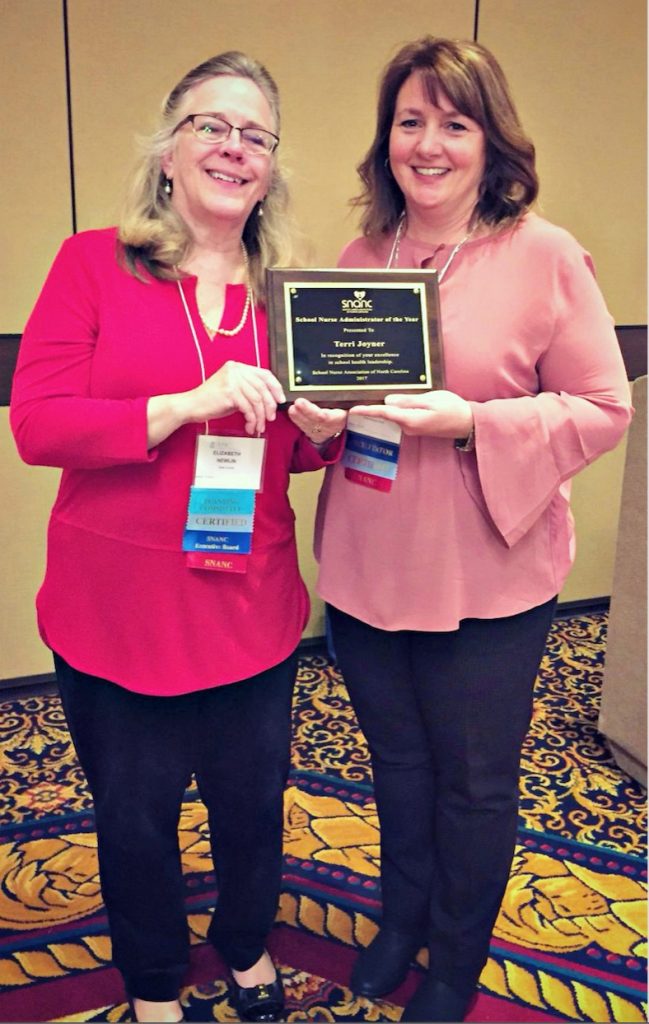ECU alumna named NC School Nurse Administrator of the Year
From her 30-year career as a school nurse and nurse administrator, Terri Joyner knows that healthy children learn better— and that school nurses are key to making that happen.
The ECU alumna was recently named the School Nurse Administrator of the Year by the School Nurse Association of North Carolina.
Joyner said she was “overwhelmed” by the recognition, and that the award is an acknowledgment of the hard work school nurses and nurse administrators do on a daily basis.

Liz Newlin, former president of the School Nurse Association of North Carolina (left), presents Terri Joyner (right) with the 2017 School Nurse Administrator of the Year Award. (contributed photo)
“Most people think it’s all Band-Aids and boo-boos, but it’s not that at all,” Joyner said. “Kids face much bigger health needs than most people realize. School nurses can make a really big impact on overcoming those barriers.”
Joyner received her Bachelor of Science in Nursing from ECU in 2005 and Master of Science in Nursing in 2013. After working as a school nurse for 10 years, she became the manager of the School Health Program at Vidant Medical Center, where she oversaw the 20 school nurses serving Pitt County’s 37 schools. She retired in January.
“Terri (was) responsible for 24,000 students—24,000 sets of parents—and 3,000 staff,” Catherine Dews Nelson, senior administrator for Community Health Programs at VMC said in a press release. “The scope alone is mind-boggling, especially when you consider anything can happen at any time, any day that might require a nurse’s attention. The entire community benefits greatly from the dedication and expertise Terri brings to the work.”
Because there is not a nurse at every school each day, nurses in Pitt County must ensure schools can handle health needs when they aren’t there. They also help families navigate health care systems and find health resources.
About 20 percent of children in Pitt County have chronic health conditions, Joyner said. Nurses work with those children to guarantee access to education regardless of health needs. Joyner managed the county’s school nurses, helped them locate resources and coordinated care between the school system, the hospital and the health department.
Her favorite part of the job was the staff, she said. “I worked with the best group of women nurses out there. They are so passionate about the kids in Pitt County and helping the kids be successful academically and with their health.”
Joyner also works part-time with ECU’s College of Nursing. She said she enjoyed ECU’s program as a student and chose it for her bachelor’s and master’s degrees knowing “it was the place where I would get what I needed to improve my own practice as a nurse.”
-by Erin Shaw, University Communications